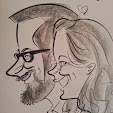Starship Troopers was a fantastic book. It's considered one of the foundational works of military scifi, and with good reason. It's pretty much the definition of the genre: a completely military perspective of future warfare, with the scifi elements mostly serving to support the military adventure. It makes for a little bit harder scifi, which is never a horrible thing in my book (or this one).
But with that being said, this book isn't good simply because it's got lots of military stuff, and guns and spaceships. It's great because it asks really thought-provoking social questions, such as: what is the cost of having a military? What does it do to the people in the military, and what kinds of things does a society have to do in order to support one? Probably the headlining question for this book is this: What if, in order to be a citizen and vote, you had to serve in the military? In order to vote, you'd have to put your life on the line for your country.
Then people have to really ask themselves: do I care about my vote? Do I really care about what my country does to me, or for me, or to others? Or is it just a spectator sport?
The Teddy Roosevelt gladiator quote certainly comes to mind as I'm trying to articulate that theme.
Very little of the book, in the end, actually has any action or battle sequences. Most of it is just the main character's military life, from enlistment to boot camp to his first outfit to his last. And the fact that Heinlein could make one man's military career a compelling, thought-provoking drama with actually very few action chapters holding it together is a huge testament to this work's worth.
Yes, I just called it a work. You're darn right I went there.
Lots of the book is taken up by his boot camp and what he remembers from a cultural history teacher in high school, which is to say that a lot of the book is taken up by the process of becoming a soldier-—what's asked of you, what you must learn and who you become as a person and whether that's worth it or important-—and by Heinlein's social grandstanding.
Yes, grandstanding. I don't think Heinlein means for us to look at this uniquely crafted society and think “Wow, this raises all kinds of questions!” There's a little bit of a sense of “Hey, wouldn't it be awesome if everything were like this?” It's not as ambiguous as I'd like, there, because it's kind of unfair to climb aboard the soap box and talk about politics and social issues within a fictional world that you've completely made up from your own head. It's unfair ground—-you can be like, “Hey, the proof is right here in the story! See what happens?” Because the story is, actually, not real.
But for as emphatic as that last paragraph looks, with all the exclamation points and italics, I'm really just venting about a general practice that isn't really that big of a deal in Troopers. I still think Heinlein's grandstanding, but I will say that it's slight grandstanding, or small grandstanding, or whatever adjective you use to mitigate the weight of that particular noun.
What keeps this book from 3.5 range, in my opinion, is a kind of lackluster plot. I just said that the character's military adventures are incredibly compelling, but I don't think that's plot so much as just darn good writing. My problem comes from when every single character that the main guy meets or likes or looks up to ends up all coming back into his life at the end of the book, all working on the same team together. It feels like the beginning of a TV series, honestly. And for such classy writing and such interesting, probing ideas, that strikes me as particularly campy.
So, Troopers is still a classic book (even after I read it!), and the stereotypes that come to mind when you think about a book called Starship Troopers do total and complete injustice to it. It's got real literary worth. Unfortunately, its somewhat mediocre plotting keeps it from being one of my all-time favorites.
3/4 stars
Subscribe to:
Post Comments (Atom)

No comments:
Post a Comment